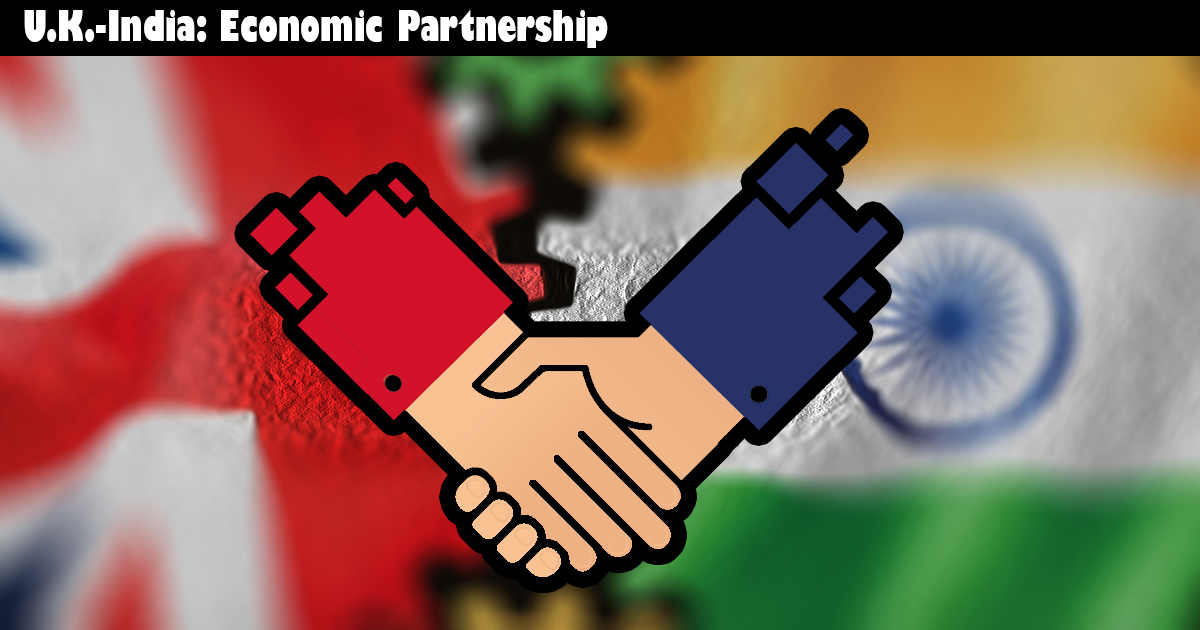
Context: The potential for a deeper economic partnership between the U.K. and India is vast, offering significant mutual benefits.
Positive Engagement:
- Strategic Partnership: Enhanced collaboration in areas such as security, technology, climate change, and education is crucial. The U.K. India Business Council highlights opportunities in R&D, technology, talent development, and supply chain integration.
- Economic Relations: Bilateral trade between the U.K. and India reached $21.34 billion in 2023-24, with substantial investments and job creation in both countries. A proposed Roadmap to 2047 aims to unlock further benefits.
- Free Trade Agreement (FTA): A swift FTA is viewed as a cornerstone for strengthening economic ties, particularly in technology and R&D collaboration.
- Healthcare Partnership: Existing collaborations, such as those in malaria vaccine development, underscore the potential for expanded cooperation in clinical trials, research, and knowledge transfer.
- Security Partnership: Joint military exercises, such as the Cobra Warrior air exercise, illustrate the ongoing security cooperation between the two nations.
- Defence Cooperation: The establishment of the Defence Industry Joint Working Group in 2022 has strengthened defense collaboration, complemented by regular military exercises.
Challenges:
- Delayed FTA: The India-U.K. Free Trade Agreement (FTA) has faced delays, missing multiple deadlines.
- U.K.’s Relations with Pakistan and China: The U.K.’s ties with Pakistan complicate efforts to build closer defense and security relations with India. Additionally, the U.K.’s engagement with China’s growing influence in the Indo-Pacific, particularly through the Belt and Road Initiative, presents challenges.
- Khalistan Issue: The U.K.’s allowance of a referendum on the creation of Khalistan, a separate Sikh state, in London was perceived by India as interference in its internal affairs.
- Illegal Migration: With over 100,000 illegal Indian immigrants residing in the U.K., both countries have yet to sign a migration and mobility agreement.
- Data Protection and Privacy: Differences in data protection laws have hindered cooperation in technology and innovation.
- Anti-Colonial Sentiment: The legacy of colonialism and differing views on historical events, such as Partition and ongoing issues with Pakistan and Kashmir, continue to impact relations.
Way Forward:
- Business Environment Reforms: Facilitating the integration of British companies into Indian supply chains through supportive tariffs, standards, streamlined approvals, and transparency.
- Taxation and Regulation: Ensuring parity in policies and protection for intellectual property (IP) to attract British investors.
- Climate and Clean Energy: Accelerating the clean energy transition and enhancing collaboration in areas like vaccines, antimicrobial resistance, and health worker mobility. An example is the India-U.K. Green Growth Equity Fund.
- Enhance Data Sharing: The U.K.’s Data Protection Bill can pave the way for secure data sharing between Indian and U.K. businesses.
- Defence Partnership: The U.K.’s advanced defense industry can support India’s goals of indigenization and technology access.
- People-to-People Ties: Strengthening connections through education, arts, culture, and streamlining visa processes.




